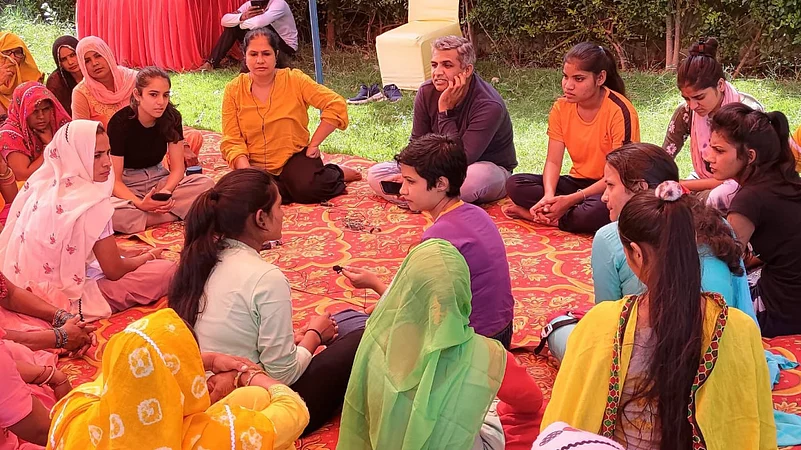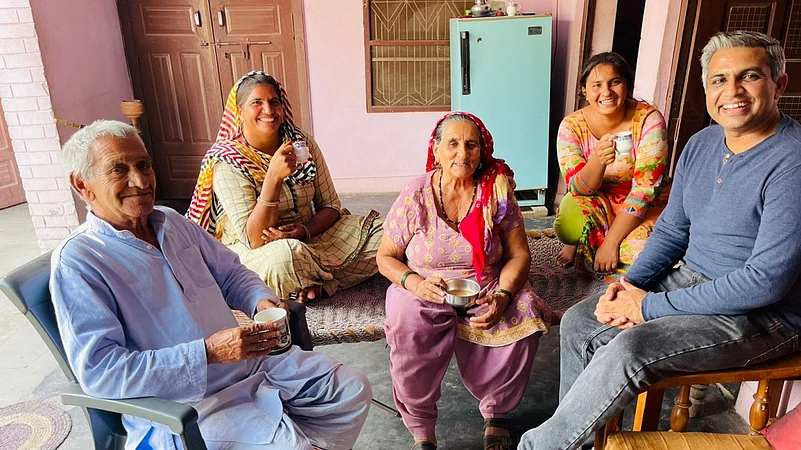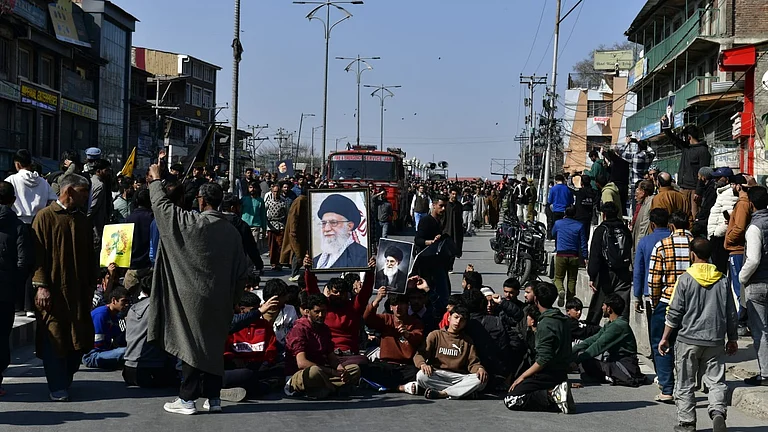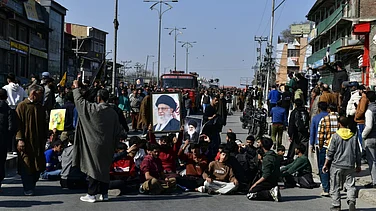'Teri Ma Ki...', "B*******d", "B***h... if you dive down into your vocabulary of slang, cuss and swear words in India, it will be hard to find expletives that do not shame women of the female anatomy. Call it patriarchy or the fact that many men seem to think of women as their property, women seem to be part of all the cuss words we use. These words are not just used by adults but also used generously by children who might not even understand the meaning of the word they are using.
Rishidha Katan, Class IX student in Gurugram, admits that cuss words related to females are quite common among her friends. “I have noticed that many of my friends and even I when I am angry use these cuss words which are related to mother and sisters. But the time has come to put an end to these words,” she said.
Women are often defined on the basis of their relationships with other men. For example, a stalker can be affronted with the one-liner—"Don't you have mother and sisters at home?" Simply put, the relationship must be defined and a woman's value rests upon it.

This may be attributed to the enduring commoditization of women. Their anatomy is associated with the honour of man, his family, clan, society and at times even region. So, if you want to degrade a person, ruin, or mock at the honour of his women. Like Son of a b***h and several other expletives invoking mother and sisters.
These words have become part of common parlance in such a way that they transcend anger and fights and are often used jovially - even endearingly. While these instances may seem harmless, these words are still aimed at women and perpetuate sexism, either explicitly or implicitly. Such words have become so normal enough for people to even forget what they really mean sometimes. But while there are lots of anti-woman pejoratives in every language, it is harder to find words condemning them.
Sunil Jaglan, a former Sarpanch of village Bibipur, district Jind in Haryana too faced a similar situation. The realisation came during lockdown when many spent a sudden and considerable time indoors. “It started nearly one and a half hours ago, it was lockdown period and everyone was confined to their home and getting violent or abusive. Even in our house, at times, I realised that even I utter such slang. I felt that I should not use them else my daughters will also learn them. I shared my feelings with my friends and in several WhatsApp groups”.
Thus started the 'Gaali Bandh Ghar' campaign. Simply put, it means that cuss words will not be used in the house by anyone. “Gender-based discrimination starts from home. We start uttering such cuss words related to mother and sister at home knowingly or unknowingly. The first step towards gender discrimination is gaali, So, we want it to stop at home.” said Jaglan.
The present-day trend of web series has normalised abusive language. Even girls do not hesitate to use sexist cuss words without thinking about their meaning. “I admit that when I am angry, even I end up using these words. Not only in Hindi but also in English. But all these cuss words are related to females," Rishidha said. Now she is an active member of the campaign and is motivating others to stop using misogynistic cuss words.
Jaglan feels that the usage of cuss words has been normalised to such an extent that even North Indian local singers use it in their songs.
Gaali Bandh Ghar
In a bid to make homes less sexist, Jaglan has toured states like Haryana, Uttar Pradesh, Rajasthan, and Himachal Pradesh in the past year. He and his volunteers pick villages and go from door-to-door, talking to the family members and children separately and explaining to them the repercussions of these words.

Once 15-20 families are contacted personally and are in support of Gaali Bandh Ghar campaign, the community in the same village is approached in a public panchayat. The campaign gets support from those 20 homes and a pledge is administered-- "we will not utter these cuss words in homes and our home is gaali bandh ghar".
"We have given them a chart to just note down the times they utter such words. People have agreed and the frequency is decreasing," Jaglan said.
“The elderlies in the village say that they cannot leave these words. Such words have become a habit. They have heard it from their forefathers and now their children are learning the same way. It is just misogyny in disguise and it starts from home,” he said.
In cities, even the girls have started sharing such things. Many of them shared the screenshot of their chats to Jaglan where using such words is common. Jaglan added that by approaching the female students he urged them that it is their battle and they should come forward.
The campaign is fast gaining ground, already hundreds of families have pledged that cuss words will not be used in their house, their home is Gaali Bandh Ghar.
Not to mention, the campaign also reached neighboring country Nepal. “I visited Nepal and introduced the campaign and to my surprise I got overwhelming response and feedback from them,” he said.
(Mohd Faisal is a senior journalist. Views expressed are personal and may not necessarily reflect the views of Outlook Magazine.)

















